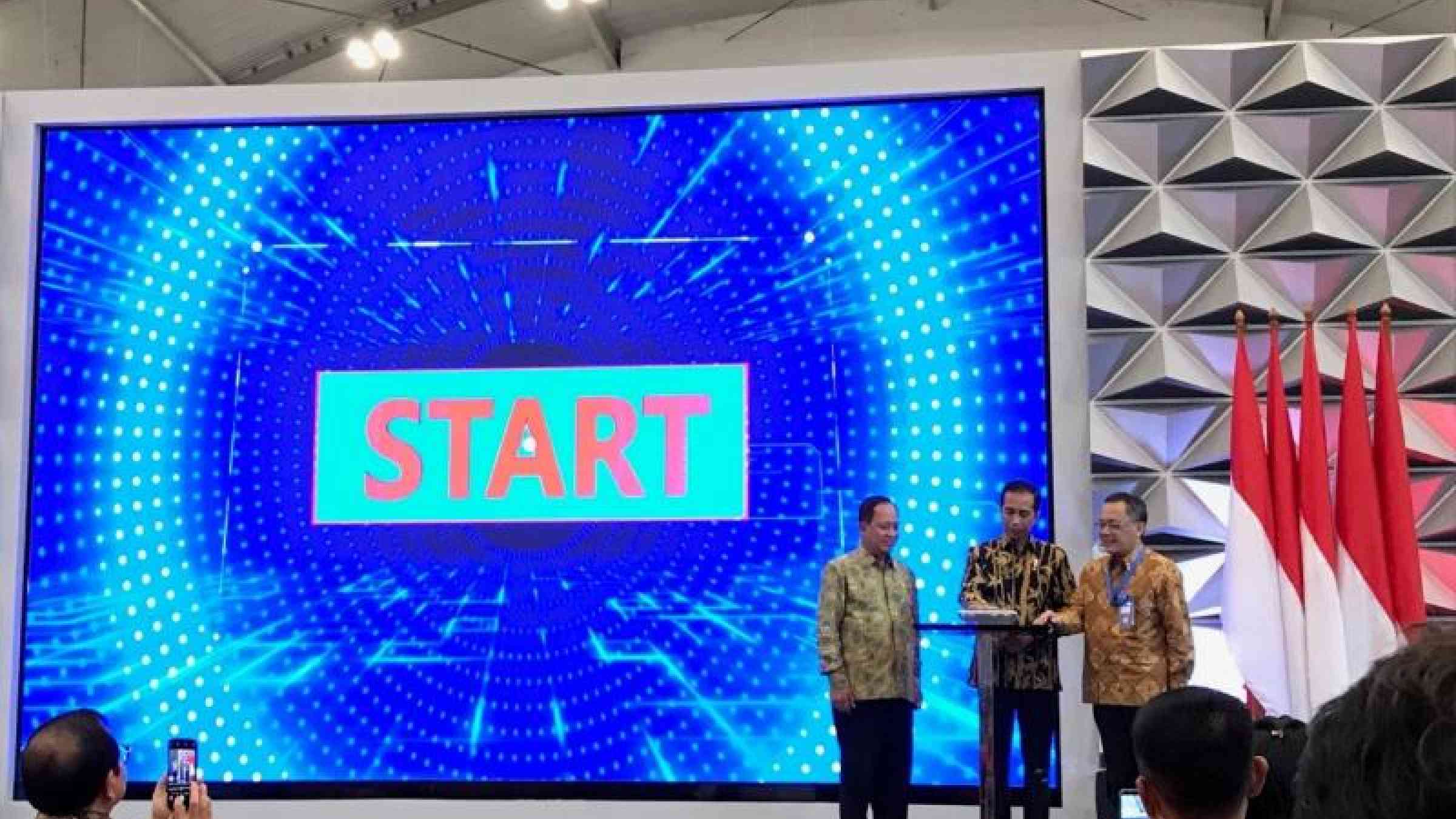Science Expo 2018: Science and DRR

With a click, Indonesia’s President Joko “Jokowi” Widodo, opened the Science Expo on 1 November 2018. (Credit: @animesh00)
Jakarta, 20 November 2018 – The UN Office for Disaster Risk Reduction (UNISDR) is using its convening power to strengthen, empower and mobilize young scientists to contribute to advancing disaster risk reduction in Asia and the Pacific.
UNISDR supported and participated in a two-day workshop, organized by UNESCO, alongside the Indonesian Science Expo (ISE 2018) – a regional event that included exhibitions, scientific conferences, workshops, science shows, a youth science and innovation fair, science films and an art gallery.
Emphasizing the importance of science to social advancement, Indonesia’s President, His Excellency Joko “Jokowi” Widodo, personally opened the expo. “In every situation, research institutions play a central role in human life and their environment to provide high quality research and to cope with new challenges,” said Mr. Widodo.
A key feature of the workshop was an innovative platform of youth and young professionals, U-INSPIRE (Youth and Young Professionals on Innovation, Science, and Technology Platform for Resiliency) to accelerate the implementation of disaster risk reduction through harnessing the potential of young scientists.
From adjusting to changing hazards, to helping decision-makers enhance the resilience of our ever-growing cities in a sustainable and cost-effective manner, there is a need for quality research to guide efforts and to localize them.
In line with the Sendai Framework’s recommendations, UNISDR’s Deputy Chief for Asia and the Pacific, Animesh Kumar highlighted the importance of the engagement and empowerment of children, youth and science and technology communities to have a seat on the policy table.
In his welcome remarks at the event, Mr Kumar said: “When these two communities join hands, we can be more confident of our common future.”
Several members of the UNISDR Global Scientific and Technical Advisory Group (G-STAG) and the Asian Science, Technology Academia Advisory Group (ASTAAG) participated and spoke at the workshop that also saw very active participation from the UN Major Group on Children and Youth. Over 50 young scientists from 32 countries participated in the event.
The International Center for Integrated Advance Research of the Indonesian Institute of Sciences (ICIAR LIPI) also partnered to organize the workshop.
Explore further
Also featured on
Is this page useful?
Yes No Report an issue on this pageThank you. If you have 2 minutes, we would benefit from additional feedback (link opens in a new window).